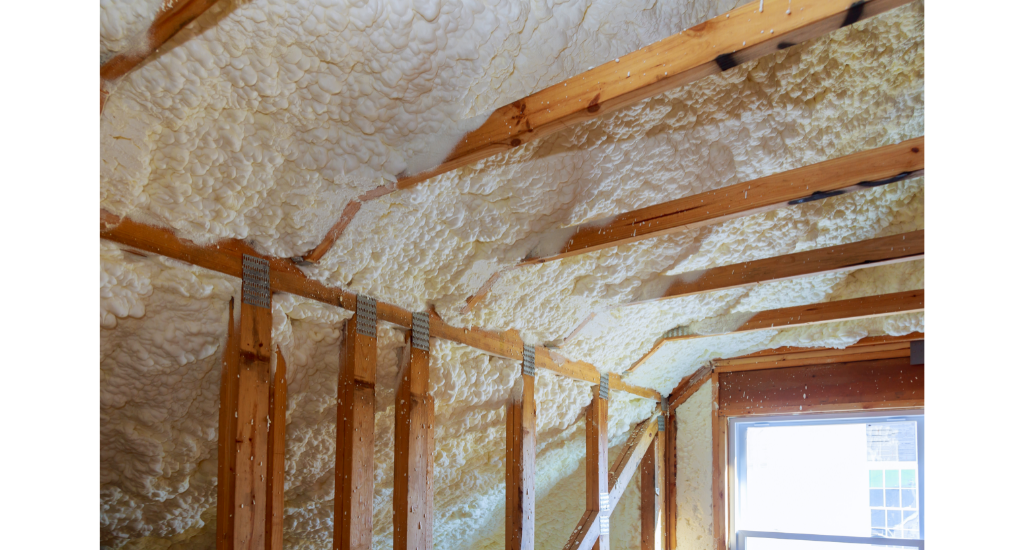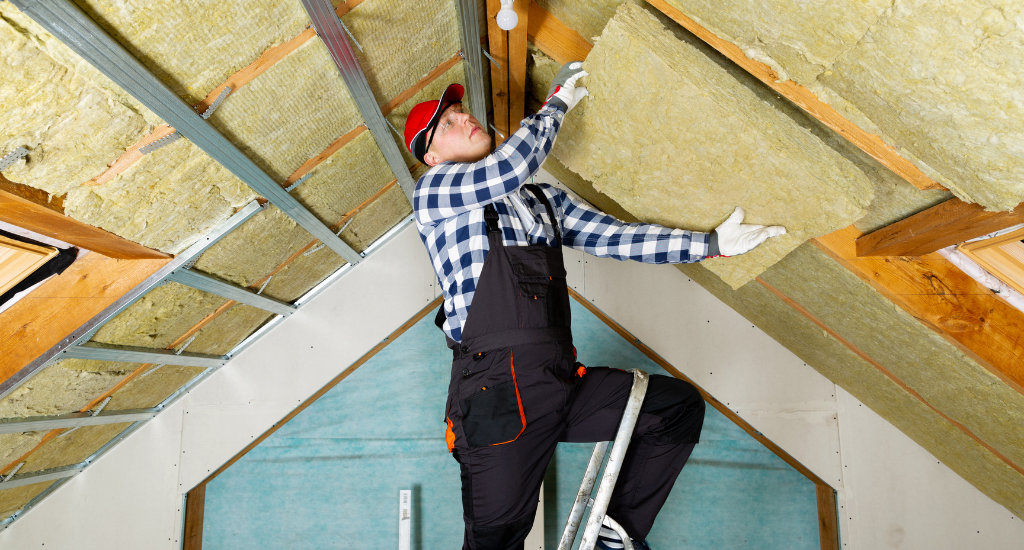When it comes to the value of our homes, few factors hold as much sway as the state of the real estate market and the condition of the property itself. A home is not just a place to live; it is an investment that can yield significant financial returns. One often overlooked yet vital aspect that can substantially influence your home’s resale value is insulating your attic for resale.
In this article, we delve into the profound impact of attic insulation on your home’s resale value and why investing in this aspect is a smart decision for both current comfort and future financial gain.
The Role of Attic Insulation
Before delving into the effects on resale value, it’s important to understand the role of attic insulation. Attic insulation acts as a thermal barrier, preventing heat transfer between the inside and outside of your home. By effectively sealing the space, insulation also prevents air leakage, which can lead to temperature inconsistencies and energy wastage.
Common materials used for insulating your attic for resale include fiberglass, cellulose, and spray foam. These materials are chosen based on their insulation capabilities and their compatibility with various housing structures.
The Connection to Resale Value
In recent years, the real estate landscape has shifted towards an emphasis on energy efficiency and sustainability. Homebuyers are not just looking for a place to live; they’re seeking properties that offer long-term benefits in terms of reduced energy costs and lower environmental impact. This shift has placed insulating your attic for resale in the spotlight. Studies have consistently shown that homes with proper insulation tend to command higher resale prices compared to those without.
According to the National Association of Realtors, energy-efficient features have become a top priority for many buyers. Attic insulation is a key component of this trend, as it directly affects a home’s energy efficiency. When insulating your attic for resale, you’re essentially making your property more attractive to a growing segment of the market that values sustainability and financial savings.
Energy Efficiency Benefits
One of the most tangible advantages of insulating your attic for resale is the significant boost in energy efficiency. Attic insulation acts as a barrier against outdoor temperature fluctuations, helping to maintain a consistent indoor climate. This, in turn, reduces the strain on your heating and cooling systems, leading to lower energy consumption and ultimately, reduced utility bills.
Imagine a potential homebuyer evaluating two similar properties. One has a well-insulated attic, resulting in lower energy bills throughout the year. The other lacks proper insulation, leading to higher energy costs. It’s clear that the former property would be more appealing due to the immediate financial benefits it offers. This scenario exemplifies how insulating your attic for resale can directly impact a buyer’s decision-making process.
Enhanced Comfort and Livability
Beyond financial gains, insulating your attic for resale enhances the overall comfort and livability of your home. Attic insulation creates a barrier against external temperature extremes, ensuring a more consistent indoor environment. During scorching summers or chilly winters, a properly insulated attic keeps the indoor temperature comfortable, reducing the need for excessive heating or cooling.
Potential buyers place a premium on comfort when considering a property. A home that offers a comfortable living environment is inherently more appealing. This is where insulating your attic for resale comes into play. When you can showcase how your well-insulated attic contributes to year-round comfort, you’re essentially marketing a higher quality of life to potential buyers.
Environmental Considerations
In today’s environmentally conscious society, the impact of housing on the planet is a significant concern. Insulating your attic for resale aligns with this eco-friendly sentiment. Proper insulation reduces energy waste by minimizing the need for constant temperature adjustments, which in turn reduces your carbon footprint. When prospective buyers see that a property has been designed with environmental responsibility in mind, it adds to the overall appeal and value of the home.
The concept of insulating your attic for resale also aligns with the broader market trend towards sustainable housing. Homebuyers are increasingly seeking properties that align with their values, including minimizing their impact on the environment. By investing in attic insulation, you’re not only enhancing your home’s resale value but also contributing to a more sustainable future.
Appraisal and Buyer Perception
When it comes to appraising a property’s value, the presence of energy-efficient features, such as a well-insulated attic, holds considerable weight. Appraisers take into account not just the physical features of a home, but also its long-term financial and energy-saving potential. Thus, insulating your attic for resale can directly influence the appraised value of your property.
Furthermore, buyers are keenly aware of the benefits of energy-efficient homes. A home with proper attic insulation is perceived as a valuable investment due to the immediate and long-term savings it offers. When insulating your attic for resale, you’re essentially setting your property apart from others on the market by appealing to buyers who understand the financial advantages of energy efficiency.
Return on Investment (ROI)
Investing in insulating your attic for resale offers not only enhanced comfort and environmental benefits but also a notable return on investment (ROI). The upfront costs associated with insulation projects are often recouped through reduced energy bills and increased resale value. According to the Remodeling Magazine’s Cost vs. Value Report, attic insulation consistently ranks as one of the home improvement projects with the highest ROI.
On average, insulating your attic for resale can yield an ROI of over 100%, meaning you’re likely to recoup more than you initially invest. This impressive ROI stems from the combination of energy savings and the increased market value of your home. As a homeowner, the idea of making an investment that not only pays for itself but also contributes to your home’s overall worth is undoubtedly appealing.
Factors Influencing Impact
Several factors influence how significantly insulating your attic for resale can impact your home’s value. The type and quality of insulation used play a crucial role. High-quality materials and professional installation ensure optimal energy efficiency and long-term benefits. Additionally, the thickness of the insulation matters; thicker insulation generally provides better thermal resistance, resulting in improved performance.
It’s important to recognize that the impact of insulating your attic for resale is not just about the insulation itself but also about the overall condition of your property. A well-maintained home with a properly insulated attic sends a strong signal to potential buyers about the care and attention given to the property. This holistic approach to home improvement can significantly contribute to increasing resale value.
Overcoming Concerns and Misconceptions
While the benefits of insulating your attic for resale are evident, some homeowners may have concerns or misconceptions about the process. One common misconception is that insulation projects are prohibitively expensive. While there is an upfront cost, the long-term savings and increased resale value often outweigh this initial investment.
Another concern is the complexity of the installation process. Many homeowners worry about disruption during installation. However, professional insulation contractors are equipped to minimize disturbances and complete the project efficiently. It’s essential to address these concerns and provide accurate information to homeowners who might be hesitant to invest in insulation.
Showcasing Attic Insulation during Resale
Effectively marketing the benefits of insulating your attic for resale is key to attracting potential buyers. In property listings, highlight the energy efficiency and financial savings that come with a well-insulated attic. Use descriptive language to paint a picture of a comfortable and sustainable living environment. Mention the high ROI potential to capture the attention of financially savvy buyers.
During home showings, make sure to emphasize the features that set your property apart. Take buyers through the attic space, explaining how insulation works and the tangible benefits it offers. Use before-and-after energy bill comparisons to demonstrate potential savings. By showcasing the direct impact of insulating your attic for resale, you can effectively communicate the value proposition to interested buyers.
Conclusion – Insulate Your Attic for Enhanced Property Value

The impact of insulating your attic for resale is undeniable. This often overlooked aspect of home improvement can significantly influence your property’s resale value, making it a wise investment for both current and future financial gain. With the real estate market’s growing emphasis on energy efficiency and sustainability, homes with properly insulated attics hold a competitive edge.
By improving energy efficiency, enhancing comfort, and aligning with eco-friendly trends, insulating your attic for resale offers a multitude of benefits. From lower energy bills to increased buyer interest and higher appraised values, the advantages are clear. So, as you consider ways to enhance your home’s value, don’t overlook the transformative power of insulating your attic for resale – a decision that can pay dividends for years to come.




